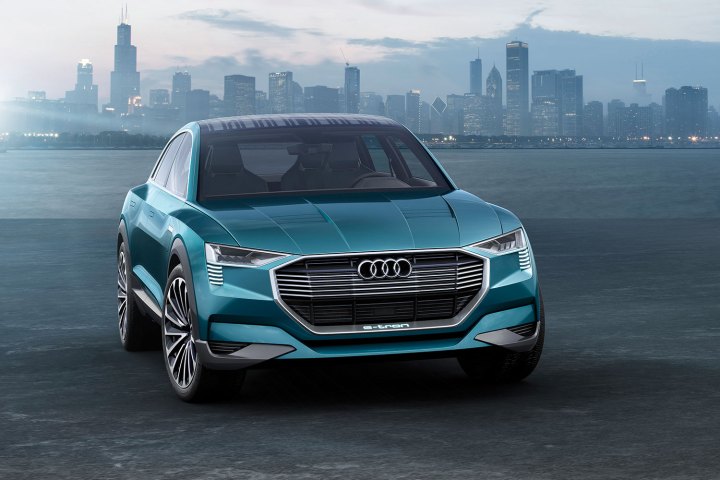
Due in 2018, the SUV will simply be known as the “e-tron,” Audi CEO Rupert Stadler told British car magazine Autocar in a recent interview. That’s not far off from the e-tron quattro name used for the 2015 Frankfurt Motor Show concept that previewed the SUV. It also contradicts numerous reports that the model would be called the Q6 e-tron, which would have fit with Audi’s current SUV naming scheme.
Stadler said the somewhat laconic e-tron name was intended to evoke the “quattro” name used on Audi’s first all-wheel drive model (formally known as the Coupe quattro) back in the 1980s. As with quattro, e-tron will also be used to denote both a specific model and a piece of technology. So Audi will continue to use the e-tron designation to denote electrified powertrains in other models.
Read more: Audi kills its R8 e-tron with less than 100 units built
Audi introduced the e-tron name in 2009 for a concept car that was essentially an electric version of the R8 supercar. Since then, it has applied the name to the A3 Sportback e-tron and Q7 e-tron plug-in hybrids (the latter isn’t sold in the U.S.), and the short-lived R8 e-tron electric car which, like the original e-tron concept, was an electric version of the R8.
The production Audi e-tron will likely retain styling elements and the powertrain from the e-tron quattro concept that debuted in Frankfurt last year. That means three electric motors producing a combined 430 horsepower, and a range of around 300 miles on the European testing cycle. Audi plans to start production at a factory in Belgium in time for a 2018 launch.
The SUV will likely be the first of several Audi electric cars. Last year, the automaker said it expects electric cars to account for 25 percent of its U.S. sales by 2025. The move is driven by stricter emissions standards, as well as competition from Tesla Motors and Audi’s German rivals, which are planning more electric cars of their own.


